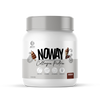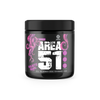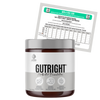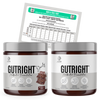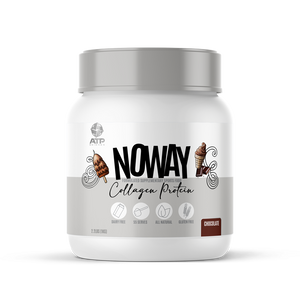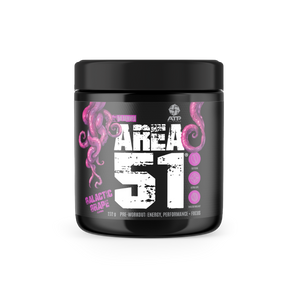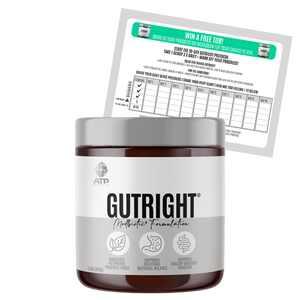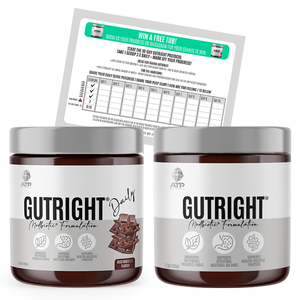Muscle Hypertrophy - from Training to your Tucker

Muscle hypertrophy - I mean, who doesn't want bigger muscles? 99.999% of guys want more muscle mass, and it is fair to say several women want to tone up (gain the muscle and lose the fat). So, the following is a guide on how to put muscle on as effectively as you can. Sure, this means hitting the gym and eating more protein, but that is not the whole story. What types of exercise do you do at the gym to maximise growth? And what food will help you get more muscle faster? Let us look at these questions.
The gym beckons
You can build muscle without the gym, but it is the best and easiest way to lift heavy weights safely. In a significant systemic review published in 2019 [1], the researchers identified 3 significant factors that increase muscle size (often called the "3 M's"), which are: 1. Mechanical tension (the more strain, the more muscle growth) 2. Metabolic Stress (the more muscular fatigue you feel, the more muscle you will build) and 3. Muscle damage (the more significant the resultant muscle damage, the bigger your muscles will grow). Let us look at those three factors one by one.
- Mechanical tension is when you overload your muscles. The best way to achieve this is to perform a lower number of reps (6-10) but with a high weight amount and high levels of sets, even as high as 30 sets over the week. Doing 30 sets per week is associated with more significant muscle gains than ten sets per week.[2]
- Metabolic Stress. When one implements training with a moderate number of repetitions (6−12 reps), with multiple sets (3−6), with moderate loads (60−80% 1RM), and short rest intervals (60 s) between sets, this elicits greater metabolic stress (in contrast with high-loads), which has been found to be a potent stimulus for inducing muscle hypertrophy.[3]
- Muscle damage. This doesn't sound good! After all, who wants to do damage? Well, you do want to do damage, but only microdamage to the muscles. The way to achieve this is to work out until you reach failure (the inability to complete one more rep while holding your good form). This one seems to be the key to fantastic muscle growth. One researcher found similar growth of muscle mass, despite varying the load and repetitions on the muscles. In other words, it doesn't matter so much if you use lighter weights and do more reps; as long as you go to 'failure', you should grow.[4]
So sure, hit the gym and hit it hard. You have to 'fail' to succeed in this case. For the sake of time, use heavier weights and lower reps, simply because you have more time to work out other muscle parts. Do as many reps as you can in your given week, as this will also boost muscle mass.
Eat well
Training hard is only half the battle. Remember, abs are made in the kitchen, and so are biceps, for that matter. You have to eat to grow. Most serious bodybuilders go through a bulking phase before they then trim down for their competition. What this means is that you have to consume excessive calories so as your weight and muscles grow. Yes, you may also put on a bit of fat while you are growing, but this can be stripped away at a later date. This article is focusing on muscle growth, so what do we eat to grow? Let us look at the individual macronutrients.
Protein for Muscle Hypertrophy
Yes, it is an obvious one, as we all know that we need to eat more protein. But how much? Firstly, there are some interesting facts about consuming protein. Did you know that only about 10% of the protein you consume ends up in the muscle? [5] Below is a diagram demonstrating this.
10% doesn't sound like much, and when you consider that if you consume 100g of pure protein daily (like 1/2kg of steak per day), which is about how much most people consume daily. So, only 10g per day of protein will end up in your muscles if you eat that way. This is ok, but even if you assume you never lose muscle (and you do), it will take you over three months to put on 1kg of muscle. We can do better than that!
So yes, eat more protein, but you can supplement with more protein also. For example, if you consume a protein powder source after exercise, the optimal minimal dose is 40g of protein (20g of you don’t exercise).[6] So straight away, aside from a protein-rich diet, consuming more than 40g of protein post-exercise is a great start. Studies have found that up to 3.1g/kg/day is needed to be consumed daily to optimise muscle gain.[7] This equates to consuming 1.5kg of rump steak per day! Of course, that is yummy but probably impractical so supplementing your diet with a good collagen protein is probably the easiest solution.
Carbohydrates
It is also important to consume carbohydrates during your bulking phase. Carbohydrates essentially perform three muscle growth functions:
- Carbohydrates spare protein. Without consuming carbohydrates, the protein you consume can be converted to carbohydrates (gluconeogenesis).
- Carbohydrates send growth signals. Carbohydrate consumption leads to the release of insulin, and insulin alone is a powerful growth hormone. Insulin then combines with growth hormone to produce the potent anabolic hormone Insulin-like growth factor 1 (IGF-1).
- Carbohydrates provide energy. Remember from the first part of this article, you need to smash it out at the gym, and carbohydrates can help with that explosive power to go hard!
Which carbohydrates should you eat? It would help if you bulked your diet out with vegetables, fruits and salads, but on top of that, rice and other gluten-free grains can be consumed short term as they drive-up insulin to pop that muscle on.
Fats
Fats tend to take care of themselves in the muscle gaining world; however, you still need an excess of calories, so consuming fats is a great way to bulk up on calories. Of course, consume healthy fats like medium-chain triglycerides, fish oils, nuts, seeds and other beneficial oils. Avoid processed fats like margarine, trans fats and excessive vegetable oils.
The take-home message on Muscle Hypertrophy
Firstly, the gym needs often visits and when you are there, smash it. Do it safely but go to failure. Then consume protein. This may be the most challenging part to hit your goals. After that, eat a plant-based diet full of colourful carbohydrates, and for a short-term gain, gluten-free grains may be employed for an insulin spike.
REFERENCES
- Krzysztofik M, Wilk M, Wojdała G, Gołaś A. Maximizing Muscle Hypertrophy: A Systematic Review of Advanced Resistance Training Techniques and Methods. Int J Environ Res Public Health. 2019;16(24):4897. Published 2019 Dec 4. doi:10.3390/ijerph16244897
- Schoenfeld B.J., Contreras B., Krieger J., Grgic J., Delcastillo K., Belliard R., Alto A. Resistance Training Volume Enhances Muscle Hypertrophy. Med. Sci. Sports Exerc. 2019;51:94. doi: 10.1249/MSS.0000000000001764.
- Schoenfeld B.J. Potential Mechanisms for a Role of Metabolic Stress in Hypertrophic Adaptations to Resistance Training. Sports Med. 2013;43:179–194. doi: 10.1007/s40279-013-0017-1.
- Ikezoe T, Kobayashi T, Nakamura M, Ichihashi N. Effects of Low-Load, Higher-Repetition vs. High-Load, Lower-Repetition Resistance Training Not Performed to Failure on Muscle Strength, Mass, and Echo Intensity in Healthy Young Men: A Time-Course Study. J Strength Cond Res. 2020 Dec;34(12):3439-3445. doi: 10.1519/JSC.0000000000002278. PMID: 29016473.
- Stokes T, Hector AJ, Morton RW, McGlory C, Phillips SM. Recent Perspectives Regarding the Role of Dietary Protein for the Promotion of Muscle Hypertrophy with Resistance Exercise Training. Nutrients. 2018;10(2):180. Published 2018 Feb 7. doi:10.3390/nu10020180
- Myofibrillar muscle protein synthesis rates are increased after a meal in response to increasing whey protein doses at rest and after resistance exercise. Witard OC, Jackman SR, Breen L, Smith K, Selby A, Tipton KD
- Am J Clin Nutr. 2014 Jan; 99(1):86-95.
- Stokes T, Hector AJ, Morton RW, McGlory C, Phillips SM. Recent Perspectives Regarding the Role of Dietary Protein for the Promotion of Muscle Hypertrophy with Resistance Exercise Training. Nutrients. 2018;10(2):180. Published 2018 Feb 7. doi:10.3390/nu10020180

